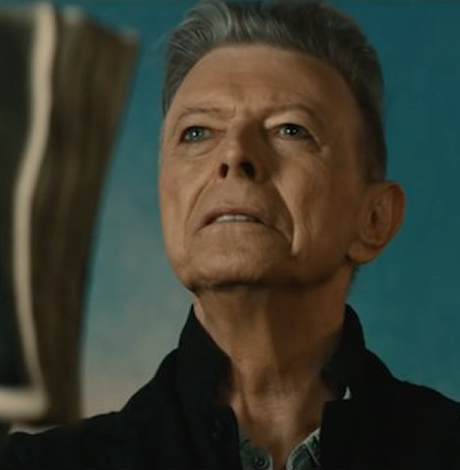Arts & Entertainment
In memoriam: Those we lost in 2016
From Bowie to Lady Chablis, a year of loss
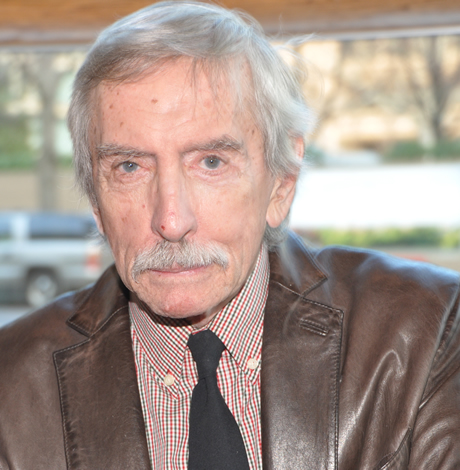

David Bowie, Lady Chablis and Edward Albee were among those we lost in 2016. (Photo of Bowie by Elmar Jr. Lordemann; screen capture of Chablis courtesy YouTube; Washington Blade photo of Albee by Michael Key)
“How can the dead be truly dead when they still live in the souls of those who are left behind?” wrote queer writer Carson McCullers in her novel “The Heart Is a Lonely Hunter.”
Below are some of the many LGBT people and allies who will live on in our minds and hearts.
David Bowie, 69, the queer, musician and actor, died on Jan. 11. Bowie had been fighting cancer for 18 months. “Blackstar,” his last album, was released days before his death. “It was a final, classic Bowie move – releasing an album without fanfare and letting the art stand on its own,” editor Kevin Naff wrote in the Blade.
Art historian Hugh Honour, 88, died on May 19 in Tofori, Italy. For more than 50 years, Honour and his partner John Fleming edited and wrote many books. “All the genius of the masters seem to tremble in the sunbeams and dance upon the waves,” Honour and Fleming wrote in “The Venetian Homes of Henry James, Whistler and Sargent.”
Connie Kopelov, 90, who had Alzheimer’s disease, died in Manhattan on May 28. Kopelov and her partner of 23 years Phyllis Siegel were the first same-sex couple to be legally married in New York City. The couple wed on July 24, 2011, the first day that same-sex couples could marry in New York State.
Melvin Dwork, 94, who was dishonorably discharged from the Navy for being gay in 1944 when he was 22, died in Manhattan on June 14. In 2011, the Navy changed his discharge to honorable.
Cultural critic John Gruen, best known for his autobiography “Callas Kissed Me…Lenny Too! A critic’s Memoir,” died on July 19 in Manhattan at age 89. In the memoir, Gruen called himself “a critic, gadfly, busybody, father, husband, queer, neurotic workaholic.”
Elliot Tiber, a businessman and gay rights activist, 81, who was instrumental in organizing the landmark Woodstock music festival, died on Aug. 3 from a stroke in Boca Raton, Fla. Many young queer people “take their current freedom for granted,” Tiber told Publishers Weekly in 2011, “Coming out in the summer of 1969 was the most dangerous yet liberating thing that ever happened to me.”
Johnny Nicholson died at his Manhattan home at age 99 on Aug. 4. Tennessee Williams and Gore Vidal were among the “New Bohemians” who frequented his restaurant, the Café Nicholson. John T. Edge called the Café “a canteen for the creative class” in the “Oxford American.”
Iconic Mexican singer Juan Gabriel, 66, died in his California home on Aug. 28. “He has passed on to become part of eternity and has left us his legacy through Juan Gabriel, the character created by him for all the music that has been song and performed all around the world,” his publicist told the Associated Press.
Over 30 years, Gabriel sold more than 100 million albums and wrote more than 1,500 songs. Mexican president Enrique Pena Nieta called Gabriel “one of the greatest musical icons of our country.”
Actor Jon Polito, 65, who appeared as gangsters in Coen brothers films, died on Sept. 1 in Los Angeles from complications of multiple myeloma. He married his husband Darryl Armbruster in 2015.
The transgender performer Lady Chablis, 59, died on Sept. 6 in Savannah, Ga. Chablis, who had pneumonia, is best known for being featured in the 1994 bestseller “Midnight in the Garden of Good and Evil.” “She was The Lady Chablis from morning to night,” Midnight’s author John Berendt, told the New York Times. “She had a great repartee, and she had a way with words.”
Edward Albee, the greatest playwright of our time, died after a brief illness on Sept. 16 at age 88 in Montauk, N.Y. Albee is best known for his groundbreaking play “Who’s Afraid of Virginia Woolf?” After the Tony-winning play ran on Broadway, it became an iconic movie starring Richard Burton and Elizabeth Taylor.
Bill Cunningham, 87, the beloved New York Times fashion photographer, died on June 25. Cunningham was known for his sense of style as well as for getting his photos of AIDS benefits and of LGBT people into the New York Times long before the paper used the words “AIDS” or “gay.”
Music & Concerts
Underdog glorious: a personal remembrance of Jill Sobule
Talented singer, songwriter died in house fire on May 1
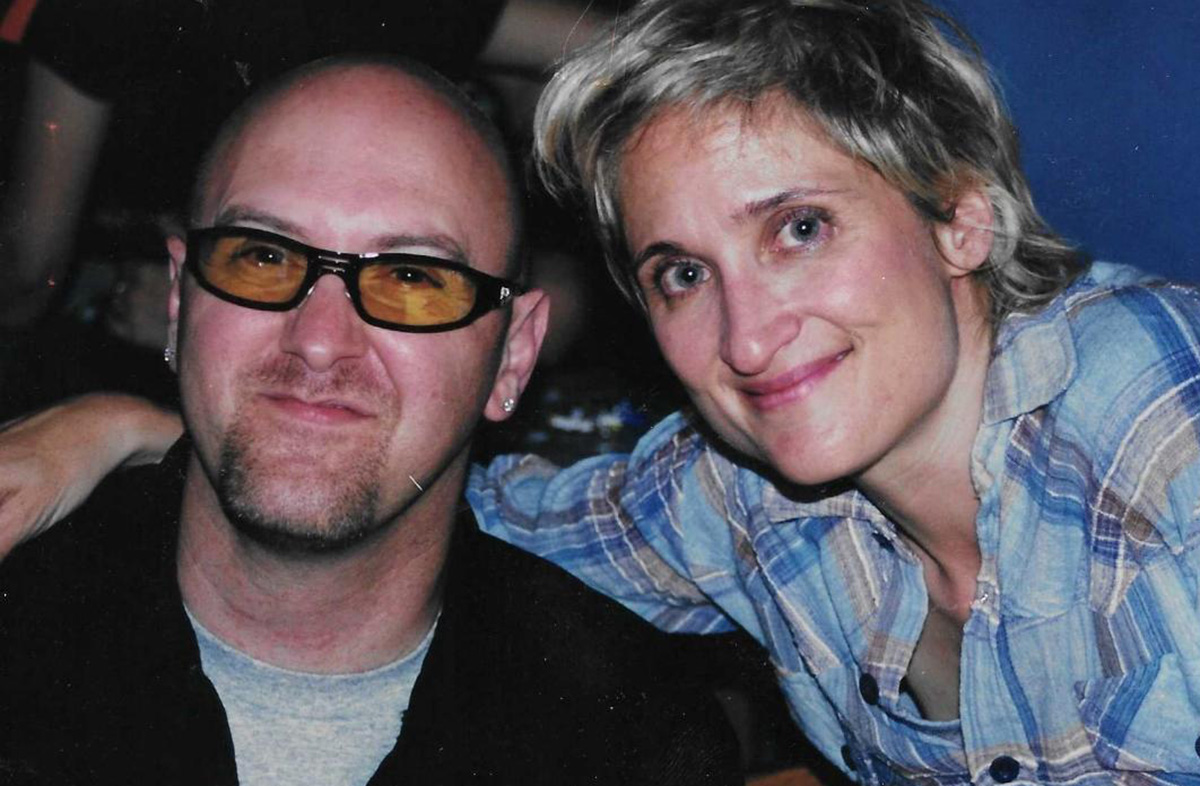
I’ve always prided myself on being the kind of music consumer who purchased music on impulse. When I stumbled across “Things Here Are Different,” Jill Sobule’s 1990 MCA Records debut album on vinyl in a favorite Chicago record store, I bought it without knowing anything about her. This was at a time when we didn’t have our phones in our pockets to search for information about the artist on the internet. The LP stayed in my collection until, as vinyl was falling out of fashion, I replaced it with a CD a few years later.
Early in my career as an entertainment journalist, I received a promo copy of Jill’s eponymous 1995 Atlantic Records album. That year, Atlantic Records was one of the labels at the forefront of signing and heavily promoting queer artists, including Melissa Ferrick and Extra Fancy, and its roster included the self-titled album by Jill. It was a smart move, as the single “I Kissed A Girl” became a hit on radio and its accompanying video (featuring Fabio!) was in heavy rotation on MTV (when they still played videos).
Unfortunately for Jill, she was a victim of record label missteps. When 1997’s wonderful “Happy Town” failed to repeat the success, Atlantic dumped her. That was Atlantic’s loss, because her next album, the superb “Pink Pearl” contained “Heroes” and “Mexican Wrestler,” two of her most beloved songs. Sadly, Beyond Music, the label that released that album ceased to exist after just a few years. To her credit, the savvy Jill had also started independently releasing music (2004’s “The Folk Years”). That was a smart move because her next major-label release, the brilliant “Underdog Victorious” on Artemis Records, met a similar fate when that label folded.
With her 2009 album “California Years,” Jill launched her own indie label, Pinko Records, on which she would release two more outstanding full-length discs, 2014’s “Dottie’s Charms” (on which she collaborated with some of her favorite writers, including David Hadju, Rick Moody, Mary Jo Salter, and Jonathan Lethem), and 2018’s stunning “Nostalgia Kills.” Jill’s cover of the late Warren Zevon’s “Don’t Let Us Get Sick” on “Nostalgia Kills” was particularly poignant as she had toured with him as an opening act.
Jill was a road warrior, constantly on tour, and her live shows were something to behold. My first interview with Jill took place at the Double Door in Chicago in early August of 1995, when she was the opening act for legendary punk band X. She had thrown her back out the previous day and was diagnosed with a herniated disc. To be comfortable, she was lying down on a fabulous-‘50s sofa. “I feel like I’m at my shrink’s,” she said to me, “Do you want me to talk about my mother?”
That sense of humor, which permeated and enriched her music, was one of many reasons to love Jill. I was privileged to interview her for seven of her albums. Everything you would want to know about her was right there in her honest lyrics, in which she balanced her distinctive brand of humor with serious subject matter. Drawing on her life experiences in songs such as “Bitter,” “Underachiever,” “One of These Days,” “Freshman,” “Jetpack,” “Nothing To Prove,” “Forbidden Thoughts of Youth,” “Island of Lost Things,” “Where Do I Begin,” “Almost Great,” and “Big Shoes,” made her songs as personal as they were universal, elicited genuine affection and concern from her devoted fans.
While she was a consummate songwriter, Jill also felt equally comfortable covering songs made famous by others, including “Just A Little Lovin’” (on the 2000 Dusty Springfield tribute album “Forever Dusty”) and “Stoned Soul Picnic” (from the 1997 Laura Nyro tribute album “Time and Love”). Jill also didn’t shy away from political subject matter in her music with “Resistance Song,” “Soldiers of Christ,” “Attic,” “Heroes,” “Under the Disco Ball,” and the incredible “America Back” as prime examples.
Here’s something else worth mentioning about Jill. She was known for collaboration skills. As a songwriter, she maintained a multi-year creative partnership with Robin Eaton (“I Kissed A Girl” and many others), as well as Richard Barone, the gay frontman of the renowned band The Bongos. Jill’s history with Barone includes performing together at a queer Octoberfest event in Chicago in 1996. Writer and comedian Julie Sweeney, of “SNL” and “Work in Progress” fame was another Chicago collaborator with Sobule (Sweeney lives in a Chicago suburb), where they frequently performed their delightful “The Jill and Julia Show.” John Doe, of the aforementioned band X, also collaborated with Jill in the studio (“Tomorrow Is Breaking” from “Nostalgia Kills”), as well as in live performances.
On a very personal note, in 2019, when I was in the process of arranging a reading at the fabulous NYC gay bookstore Bureau of General Services – Queer Division, I reached out to Jill and asked her if she would like to be on the bill with me. We alternated performing; I would read a couple of poems, and Jill would sing a couple of songs. She even set one of my poems to music, on the spot.
Jill had an abundance of talent, and when she turned her attention to musical theater, it paid off in a big way. Her stage musical “F*ck 7th Grade,” a theatrical piece that seemed like the next logical step in her career, had its premiere at Pittsburgh’s City Theatre in the fall of 2020, during the height of the pandemic. The unique staging (an outdoor drive-in stage at which audience members watched from their cars) was truly inspired. “F*ck 7th Grade” went on to become a New York Times Critic’s pick, as well as earning a Drama Desk nomination.
In honor of the 30th anniversary of Jill’s eponymous 1995 album, reissue label Rhino Records is re-releasing it on red vinyl. Jill and I had been emailing each other to arrange a time for an interview. We even had a date on the books for the third week of May.
When she died in a house fire in Minnesota on May 1 at age 66, Jill received mentions on network and cable news shows. She was showered with attention from major news outlets, including obits in the New York Times and Rolling Stone (but not Pitchfork, who couldn’t be bothered to review her music when she was alive). Is it wrong to think that if she’d gotten this much attention when she was alive she could have been as big as Taylor Swift? I don’t think so.
Books
I’m a lesbian and LGBTQ books would have changed my life
Misguided parents pushing Montgomery County court case
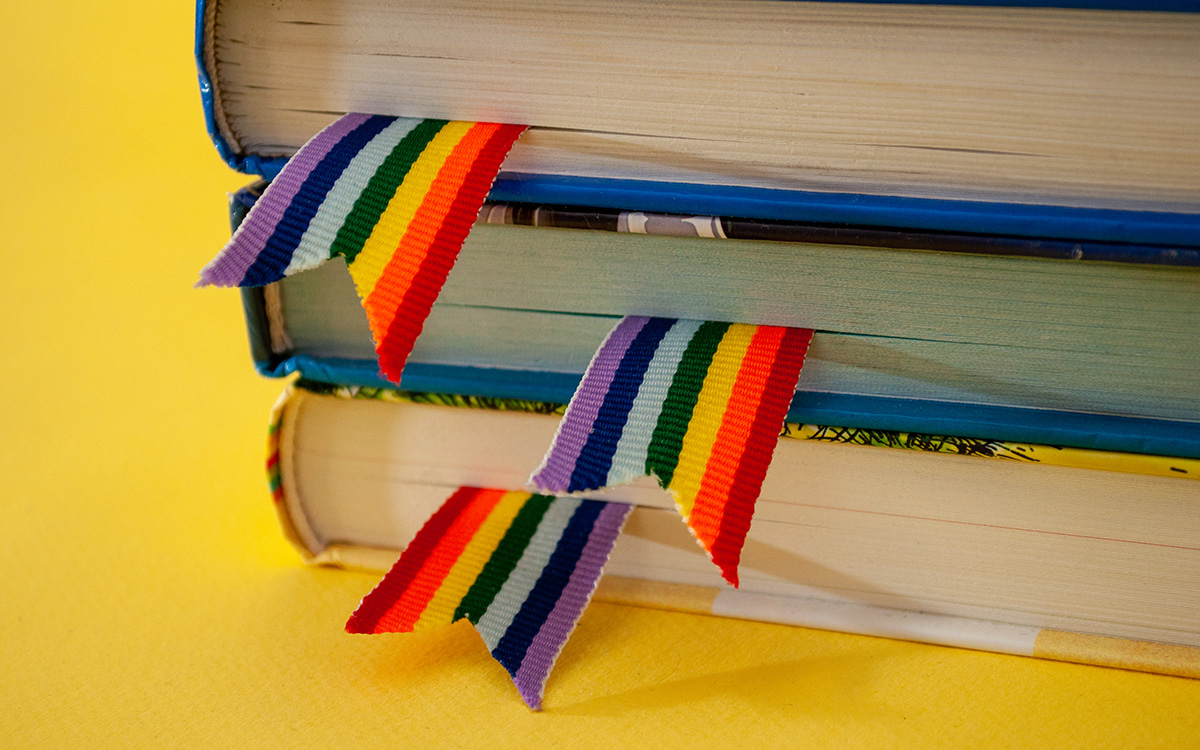
As a child born in Maryland in the 80’s, I had very few LGBTQ+ role models other than Elton John and Ellen DeGeneres. In high school, I went through the motions of going out on Friday nights with boyfriends and dancing with them at prom, but I felt nothing. I desperately wanted to fit in, and it took me until my senior year of high school to finally admit to myself that I was different – and that it hurt too much to hide it anymore.
When I think back on those years, I feel the heartache and pain all over again. I used to lay awake at night begging God not to make me gay. When a boy on my Cross Country team accused me and my friends of being lesbians, I scoffed and said, “You wish.” I hid my true self in cheap wine coolers while my hate for myself festered.
I found healing in books, my creative writing class, and my school’s literary magazine. Writing allowed me to hold up a mirror to myself and see that I could be many things: a loving daughter and sister, a supportive friend, a dedicated member of the Cross Country team, and also a girl who wanted a girlfriend. In my love poems, I evolved from ambiguous pronouns to distinctly feminine ones. When I felt ready to tell my best friend, I showed her one of my poems. To my surprise, the world did not end. She smiled and said, “It’s a good poem. Are you ready to go to the mall?”
I’m one of the lucky ones. When I finally did come out to my parents, they told me they would always love me and want me to be happy. That’s not the case for more than 40% of LGBTQ+ youth, who are kicked out of their homes after they find the courage to tell their family who they truly are. We are facing a mental health epidemic among LGBTQ+ youth, with 41% seriously considered attempting suicide in the past year, the vast majority living in homes that aren’t accepting.
Some of the dissenting parents in Mahmoud vs. Taylor argue that inclusive books aren’t appropriate for elementary school kids. To clarify, these books are simply available in schools – they aren’t required reading for anyone. There is nothing sexual or provocative about stories like “Uncle Bobby’s Wedding” or “Jacob’s Room to Choose” that send a very simple, non-political message: We all are different, and we all deserve to be treated with respect. Opting out of books that show diversity, out of fear that it might “make kids gay” fails to recognize a fundamental truth: art, pop culture, even vegan food cannot make someone gay. I was born this way. There were times I wished that I wasn’t, and that was because I didn’t have books like these telling me it was OK to be who I am.
I wonder how many parents opting out of these books will end up having a LGBTQ+ child. It is both horrible and true that these parents have two choices: love and accept your LGBTQ+ child, or risk losing them. Now that I’m a parent myself, I feel more than ever that our one aim in parenthood is to love our kids for exactly who they are, not who we want them to be.
For several years, a grocery store in Silver Spring, Md., displayed a poem I wrote for my mother in my school’s literary magazine. I wrote about how she taught me that red and blue popples can play together, and that Barbie doesn’t need Ken to be happy. I imagine that maybe, a girl passing through the store read that poem and saw a glimpse of herself inside. That spark of recognition – of I’m not the only one – is all I wanted as a child. I was able to find my happiness and my community, and I want every LGBTQ+ child to be able to do the same.
Joanna Hoffman was born and raised in Silver Spring, Md. She is the author of the poetry collection ‘Running for Trap Doors’ (Sibling Rivalry Press) and is the communications director for LPAC, the nation’s only organization dedicated to advancing the political representation of LGBTQ+ women and nonbinary candidates.
Out & About
DJs to hold panel discussion on music, identity
Featured artists include DJ Chord, Tezrah and Jake Maxwell
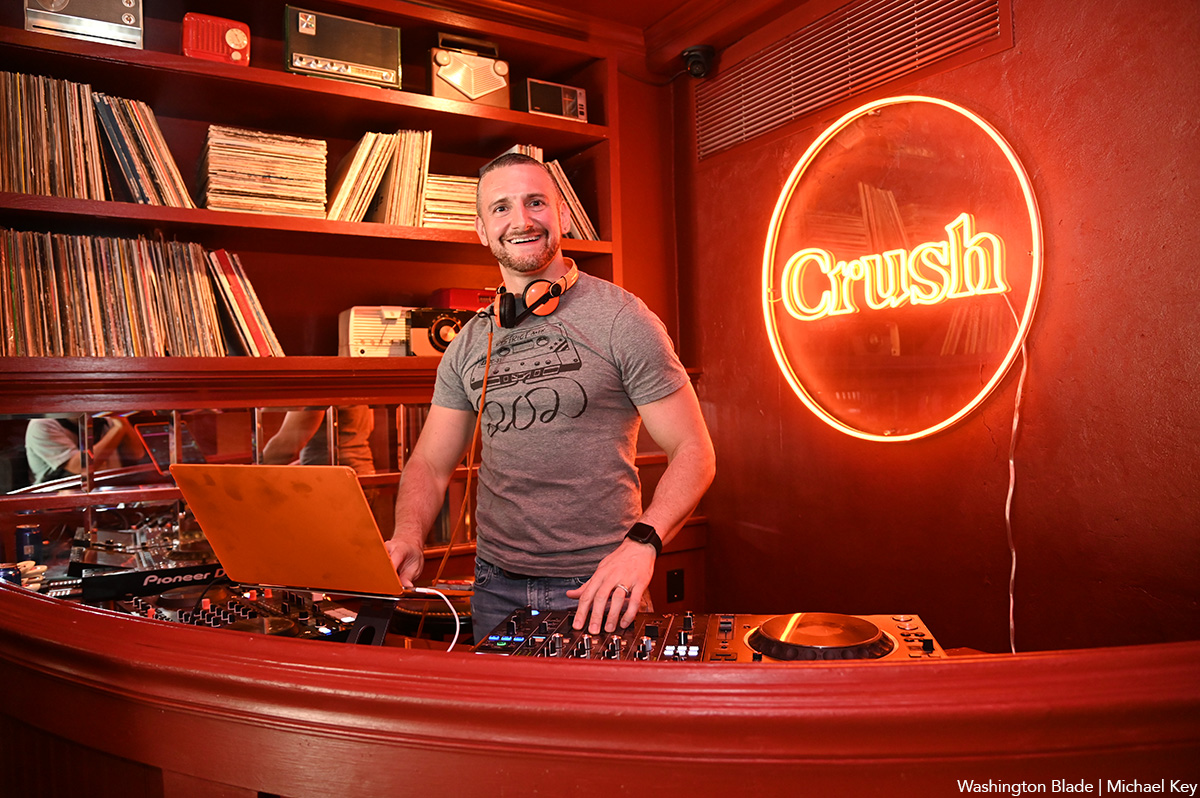
Promethean Fundraising will host “Circuit Music: A LGBTQ+ Cultural Identifier,” an exclusive panel featuring influential LGBTQ DJs in the music industry, on Thursday, May 29 at 7 p.m. at the DC Center for the LGBTQ Community (1828 Wiltberher St., N.W.).
The event will provide a unique opportunity for attendees to engage with these groundbreaking artists as they share their journeys, discuss the cultural significance of circuit music, and explore how music can serve as a platform for advocacy and empowerment within the LGBTQ+ community. The featured artists are DJ Chord, Tezrah and Jake Maxwell.
This event is free and more details are available on Eventbrite.
-
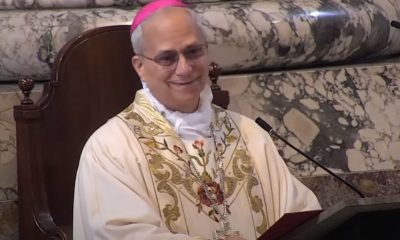
 The Vatican3 days ago
The Vatican3 days agoAmerican cardinal chosen as next pope
-
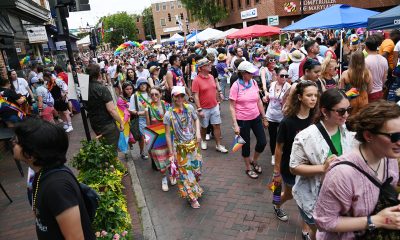
 a&e features3 days ago
a&e features3 days agoYour guide to the many Pride celebrations in D.C. region
-

 U.S. Supreme Court5 days ago
U.S. Supreme Court5 days agoSupreme Court allows Trump admin to enforce trans military ban
-

 District of Columbia4 days ago
District of Columbia4 days agoWorldPride permits for National Mall have yet to be approved


